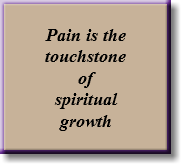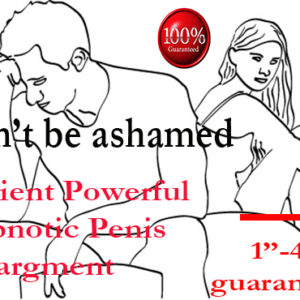
Our brain then to make us feel pain. So if we put our hand on a hot stove, our nerves send a message to our brain, and our brain quickly sends the message that our hand hurts. … We need the sensation of pain to let us know when our bodies need extra care. It’s an important signal.
When your body is injured in some way or something else is wrong, your nerves (cells that help your body send and receive information) send millions of messages to your brain about what’s going on. Your brain then makes you feel pain. The pain is a warning signal, for example when you get this message that your hand is burning, and as a result you pull your hand away from the hot stove, which saves your hand from further injury.
We sense pain, so we pay attention to our bodies and can take steps to fix what hurts. Pain also may prevent us from injuring a body part even more. If it didn’t hurt to walk on a broken leg, a person might keep using it and cause more damage. If your throat is really sore, you’ll probably go to the doctor, who can treat the infection if you have one.
We also experience emotional pain, from losing a love one, being hurt, feeling betrayed, and this pain is known as a Psychological pain or mental pain which describes an unpleasant feeling (a suffering) of a psychological, non-physical, origin. A pioneer in the field of suicidology, Edwin S. Shneidman, described it as “how much you hurt as a human being. It is mental suffering; mental torment.”
Emotional pain is a result of a possible causes of vulnerability such as:
My spouse cheated on me.
I’m alone, isolated, betrayed.
Emotional pain can manifest in the physical body easily and confuse the person into not understanding the real cause of their pain, because for some people it feels just as painful as a physical injury.
Spiritual pain is understood as the pain that comes from the “hidden” areas of our life. It can’t be pointed to on a pain scale, but it is still very real and can impact our physical and emotional health.
Spiritual pain is often broken down into four categories:
- Meaning – struggling with the “meaning” behind life, relationships, and the world around you
- Forgiveness – pain that stems from forgiving others, ourselves and God
- Relatedness – dealing with relationships, whether good or bad
- Hope – feeling like there is no hope or it doesn’t exist
Spiritual pain doesn’t discriminate based on gender or age; it affects everyone in different ways at all stages of life. Everyone is on a spiritual journey from the moment they are born and from that journey, we feel pain and, in turn, we grow. Our society doesn’t often emphasize this journey so we have a difficult time dealing with the pain when it becomes too much to handle.
After learning so much about spiritual, I realized that the best thing we can do for ourselves or a clinical hypnotherapist and an energy healer to others to keep spiritual pain from becoming too much. And my answer is simple, but powerful: take a moment to breathe and be silent.
Once, when I was faced with some of the hardest choices in my life, I have asked God, Higher Power, and the Angels, for guidance, but the only response I received was “breathe.” Our society and our lives move much too fast these days so taking the time to just breathe gives us something to focus our minds and keep them clear so the answers we are seeking can rise to the top.
Hand in hand with breathing is silence. Again, we are bombarded with messages and “noise” all around us every day. Having a place to turn that off and just listen and breathe often creates that environment of spiritual and emotional healing we are looking for. As simple I can describe it in a logical simplest way is that: “God , Higher Power, and the Angels don’t need time to speak to us; we just need to find the time to be quiet and listen to their guidance.”
As an energy healer and clinical hypnotherapist, it is difficult to know how to treat every part of a patient/client. That’s why hospitals have doctors, social services, pastoral care, palliative care, and more in order to treat the entire patient, and then to refer their patients to us. But, it’s important for all light workers, energy healers and hypnotherapists to remember one thing: we are the healing we bring.
You have probably heard someone say, “You can’t help others until you help yourself.” This is true with doctors, nurses, and all of our alternative holistic and health care providers. Once the hypnotherapist take time to be silent, breathe and confront their own spiritual pain, then they are able to incorporate that into the medical treatments and coordinated we provide at the bedside or our clients.
Spiritual pain can be recognized by the questions the patient/client is asking and in the feelings he/she is experiencing and expressing. The ‘why’ questions (classically articulated as ‘why me?’) indicate a search for meaning and are often accompanied by spiritual pain. In addition or alternatively spiritual pain may be expressed as a feeling. It is important to explore and clarify feelings such as hopelessness, despair, fear and guilt to distinguish physical, psychological or social causes from a spiritual cause. Again, an accompanying experience of meaninglessness helps to identify the latter. In this process it is important to distinguish spiritual from religious pain. While a religious individual may experience spiritual pain (and often express this in religious language eg: ‘I feel completely cut off from God’) such an individual may also experience religious pain which I would define as a conflict between an outdated image of God that individual holds (often an image from childhood with strong superego and authoritarian overtones ) and their present experience. While hopelessness and despair are more indicative of spiritual pain, guilt , shame feelings are more likely to indicate religious pain. Feelings of fear may indicate either.
I personally believe one’s intuition is important in identifying spiritual pain. While being wary of the ever present danger of projection (helped by checking out one’s impressions with other members of the caring team) my experience is that with time it becomes possible to ‘sense’, to ‘know’ when the discomfort or pain has a spiritual origin. After meeting an individual in spiritual pain I find that terms like ‘suffering’, ‘anguish’ or ‘deep restlessness’ most aptly describe the experience.
Can you identify your pain and understand why you are in pain?




 February 1st, 2017
February 1st, 2017  doreen.co
doreen.co  Posted in
Posted in  Tags:
Tags: 










 HMI Private Practice of Hypnotherapy Provider
Primary specialty: Alternative Medicine
Secondary speciality: Behavior Therapy
Doreen is an
Honors Graduate of HMI and also a Certified Practitioner /Facilitator of The Melchizedek MethodT (incorporating the Hologramof Love Merkaba). Energy Healer since August 1999, she was healedfrom a car accident preventing back surgery and being able toeliminate her back pain with hypnotherapy and energyhealing
Doreen is an Honors Graduate of HMI and also a Certified Practitioner / Facilitator of The Melchizedek MethodT (incorporating the Hologram of Love Merkaba). Energy Healer since August 1999,...
HMI Private Practice of Hypnotherapy Provider
Primary specialty: Alternative Medicine
Secondary speciality: Behavior Therapy
Doreen is an
Honors Graduate of HMI and also a Certified Practitioner /Facilitator of The Melchizedek MethodT (incorporating the Hologramof Love Merkaba). Energy Healer since August 1999, she was healedfrom a car accident preventing back surgery and being able toeliminate her back pain with hypnotherapy and energyhealing
Doreen is an Honors Graduate of HMI and also a Certified Practitioner / Facilitator of The Melchizedek MethodT (incorporating the Hologram of Love Merkaba). Energy Healer since August 1999,...